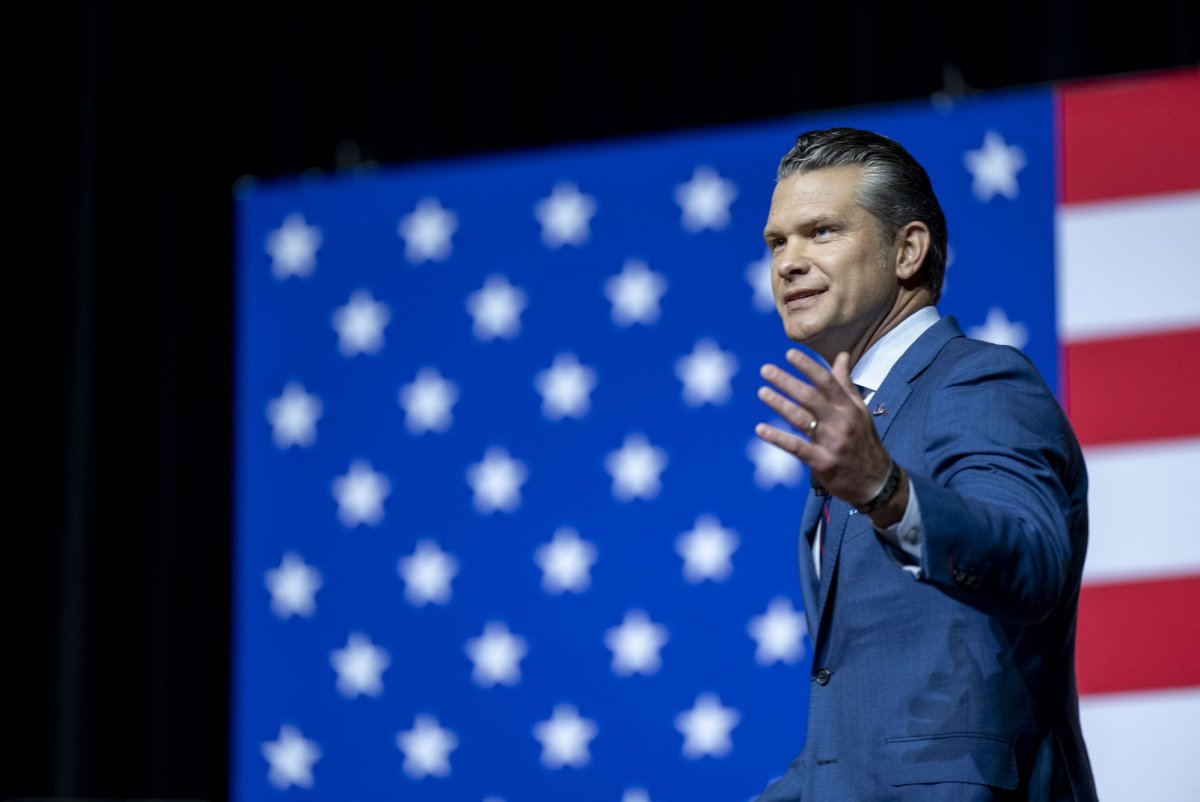Oct. 1 (UPI) — While Pete Hegseth prefers the title of secretary of war, he really needs to be the secretary of defense in protecting and defending the nation against all enemies, foreign and domestic.
This is a crucial piece of advice that, were he still alive, U.S. Sen. John McCain would have rendered. In fairness, Hegseth is one of the least qualified and inexperienced officials to hold that office since its formal establishment in 1949. That is not meant as an insult.
Hegseth, however, is very bright. He was first in his high school class and garnered top grades at Princeton. He should employ that intellect in being secretary. But as a close friend of mine has recognized, Hegseth seems to be acting more like a junior Army officer leading a squad or a platoon than a defense secretary.
He jogs with the troops, challenging them to meet the pull-ups and push-ups he and HHS Secretary Robert F. Kennedy Jr. have set as a standard. He extols the troops to be warriors, stressing the need for lethality in battle. That is all fine. But it is not being secretarial.
If Hegseth looks back at hiis predecessors, cerebrally James Schlesinger and Harold Brown set the standard. Melvin Laird, Robert Gates and Leon Panetta were no-nonsense, politically savvy secretaries. I doubt if any could do 20 push-ups or cared. But Hegseth can learn from them by addressing three crucial questions as they might have.
First, regarding China, and irrespective of whether China could or would invade Taiwan, President Xi Jinping has directed the People’s Liberation Army “to be prepared to take” the island. I repeat — be prepared, not take Taiwan by 2027.
The Pentagon has no choice but to treat that directive with the utmost seriousness. Hence, what have the Biden and Trump administrations done anticipating 2027?
From an external perspective, it appears that the United States is unprepared to fight a long war. Lockheed Martin currently produces about 140 F-35’s a year, the services’ basic fighter, with a substantial number for foreign military sales. Lockheed believes it can increase that number by 30 to 40 a year. However, that will not fill attrition in a major, lengthy war.
Weapons such as the Tomahawk cruise missile and MK 48 torpedo are probably older than the sailors who will fire them. SM-6 Standard missiles and Marine ship killer missiles are in short supply. What is being done here?
Second, what about Europe, Russia and Ukraine? President Donald Trump now believes, and he is correct, that Ukraine can win and can reacquire much or all of the territory it has lost to Russia.
But the president puts the onus of support and aid on the European Union and NATO. Some believe Trump will use that position to lessen the role of the United States. The problem is, however, who in the EU and NATO can replace the United States as the leading power in this effort? The answer is not apparent.
The United Kingdom once might have assumed that role. However, it no longer is in the EU. Its military fights are not even a shadow of its former self. It musters about 34 F-35’s. Its army is barely over 70,000. And the vaunted Royal Navy that once ruled the seas numbers 16 frigates and destroyers and a handful of nuclear attack and ballistic submarines.
The United States must lead here no matter its future commitment, and Hegseth must make that happen as he predecessors would have.
Last is turmoil in the senior uniform ranks. Under the Trump administration, an unprecedented number of senior generals and admirals have been fired without revealing cause or have taken early retirement — far greater than after Pearl Harbor or during World War II.
A chairman of the Joint Chiefs, two service chiefs, a vice chief, the most senior leaders of the intelligence community and others fell into this category. It was reported that some of the firings were based on the recommendations of outside influencers, and that may or may not be accurate.
Hegseth has shown his ability to lead squads and platoons. Tuesday’s meeting with all flag officers and senior enlisted leaders at Quantico focused more on physical fitness than on strategic thinking. But the Pentagon needs more of the latter.
If Hegseth can combine his affection for the troops with a broader strategic vision worthy of a Schlesinger or Brown and the skills of a Laird, Gates and Panetta, he will be an effective secretary. But he did not demonstrate that Tuesday.
Harlan Ullman is UPI’s Arnaud de Borchgrave Distinguished Columnist; senior adviser at Washington’s Atlantic Council, chairman of a private company and principal author of the doctrine of shock and awe. His next book, co-written with Field Marshal The Lord David Richards, former U.K. chief of defense and due out next year, is Who Thinks Best Wins: Preventing Strategic Catastrophe. The writer can be reached on X @harlankullman.
